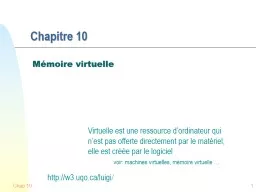PPT-Chap 1. NATURE AND IMPORTANCE OF COGNITIVE PSYCHOLOGY
Author : valerie | Published Date : 2023-07-09
By Balaji Niwlikar Sp collegepune EP 101 COGNITIVE PROCESSES Credits 4 1 httpswwwcareershodhcom OBJECTIVES 1 To acquaint the students with the processes involved
Presentation Embed Code
Download Presentation
Download Presentation The PPT/PDF document "Chap 1. NATURE AND IMPORTANCE OF COGNITI..." is the property of its rightful owner. Permission is granted to download and print the materials on this website for personal, non-commercial use only, and to display it on your personal computer provided you do not modify the materials and that you retain all copyright notices contained in the materials. By downloading content from our website, you accept the terms of this agreement.
Chap 1. NATURE AND IMPORTANCE OF COGNITIVE PSYCHOLOGY: Transcript
Download Rules Of Document
"Chap 1. NATURE AND IMPORTANCE OF COGNITIVE PSYCHOLOGY"The content belongs to its owner. You may download and print it for personal use, without modification, and keep all copyright notices. By downloading, you agree to these terms.
Related Documents














